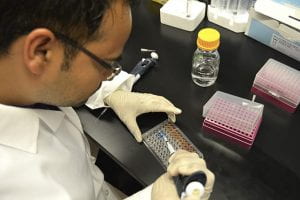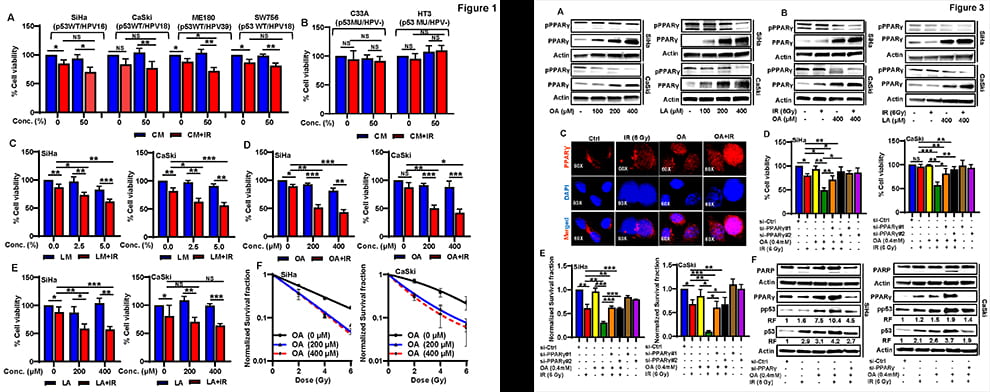
We have observed clinically that obese patients with cervical cancer have favorable outcomes after chemoradiation therapy (Oncotarget, 2018). This is unusual because obesity has been associated with not only increased incidence, but also increased treatment-related morbidity and decreased survival outcome for cancers in other sites. Our clinical data indicates that at least some of these effects are mediated through decreased PI3K/AKT signaling in tumors from obese patients. Naoshad is currently working hard to identify other potential mechanisms using our preclinical models.
October, 2022 – Naoshad has had this work published in Cancer Research. Here is the abstract:
Obesity induces numerous physiological changes that can impact cancer risk and patient
response to therapy. Obese patients with cervical cancer have been reported to have superior
outcomes following chemoradiation, suggesting that free fatty acids (FFAs) might enhance
response to radiation. Here, using preclinical models, we show that mono- and diunsaturated
FFAs (uPPAs) radiosensitize cervical cancer through a novel p53-dependent mechanism.
UFFAs signaled through PPARγ and p53 to promote lipid uptake, storage, and metabolism after radiation. Stable isotope labeling confirmed that cervical cancer cells increase both catabolic and anabolic oleate metabolism in response to radiation, with associated increases in dependence on mitochondrial fatty acid oxidation for survival. In vivo, supplementation with exogenous oleate suppressed tumor growth in xenografts after radiation, an effect which could be partially mimicked in tumors from high fat diet-induced obese mice. These results suggest that supplementation with uFFAs may improve tumor responses to radiation therapy, particularly in p53 wild type tumors.
